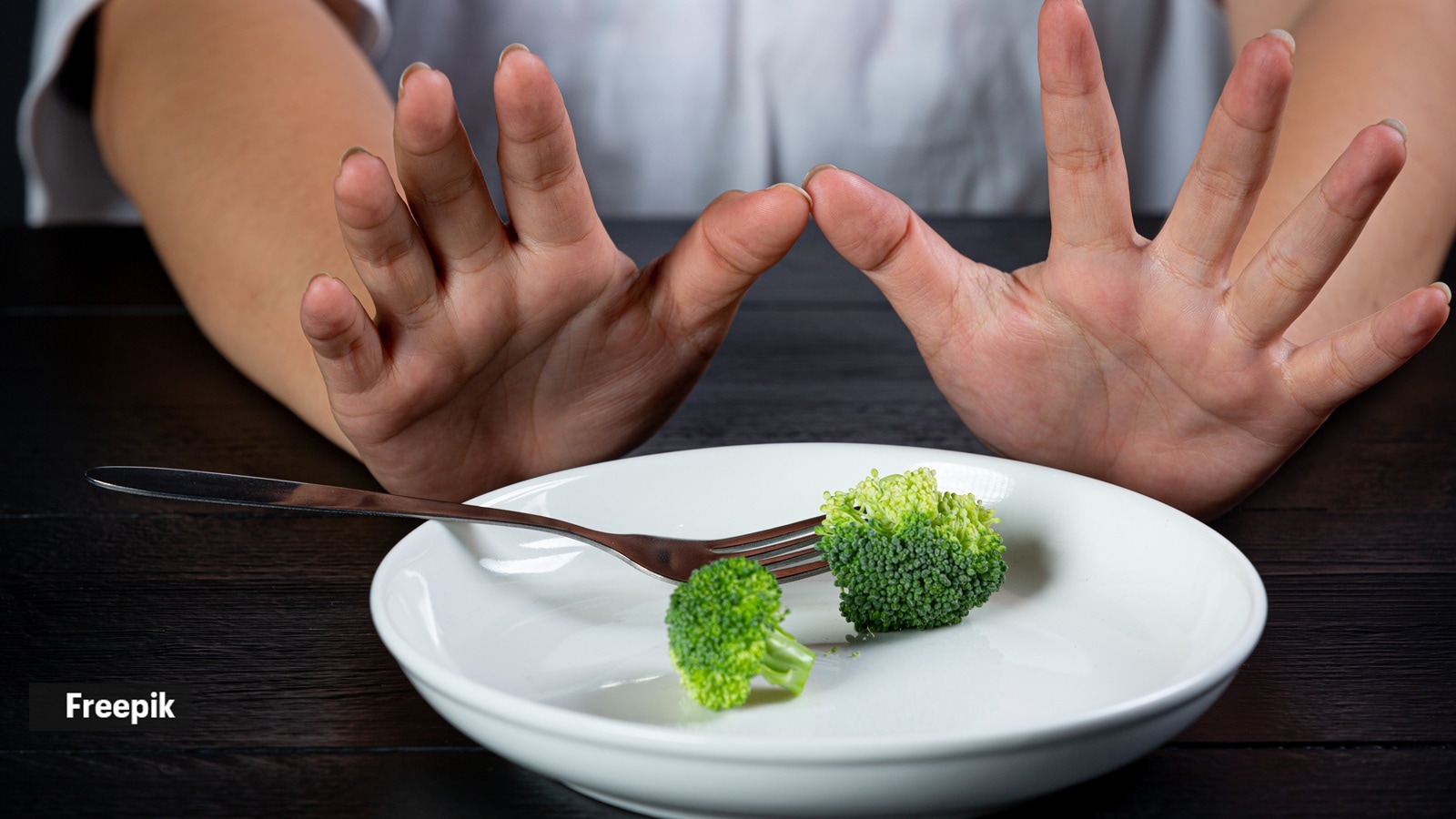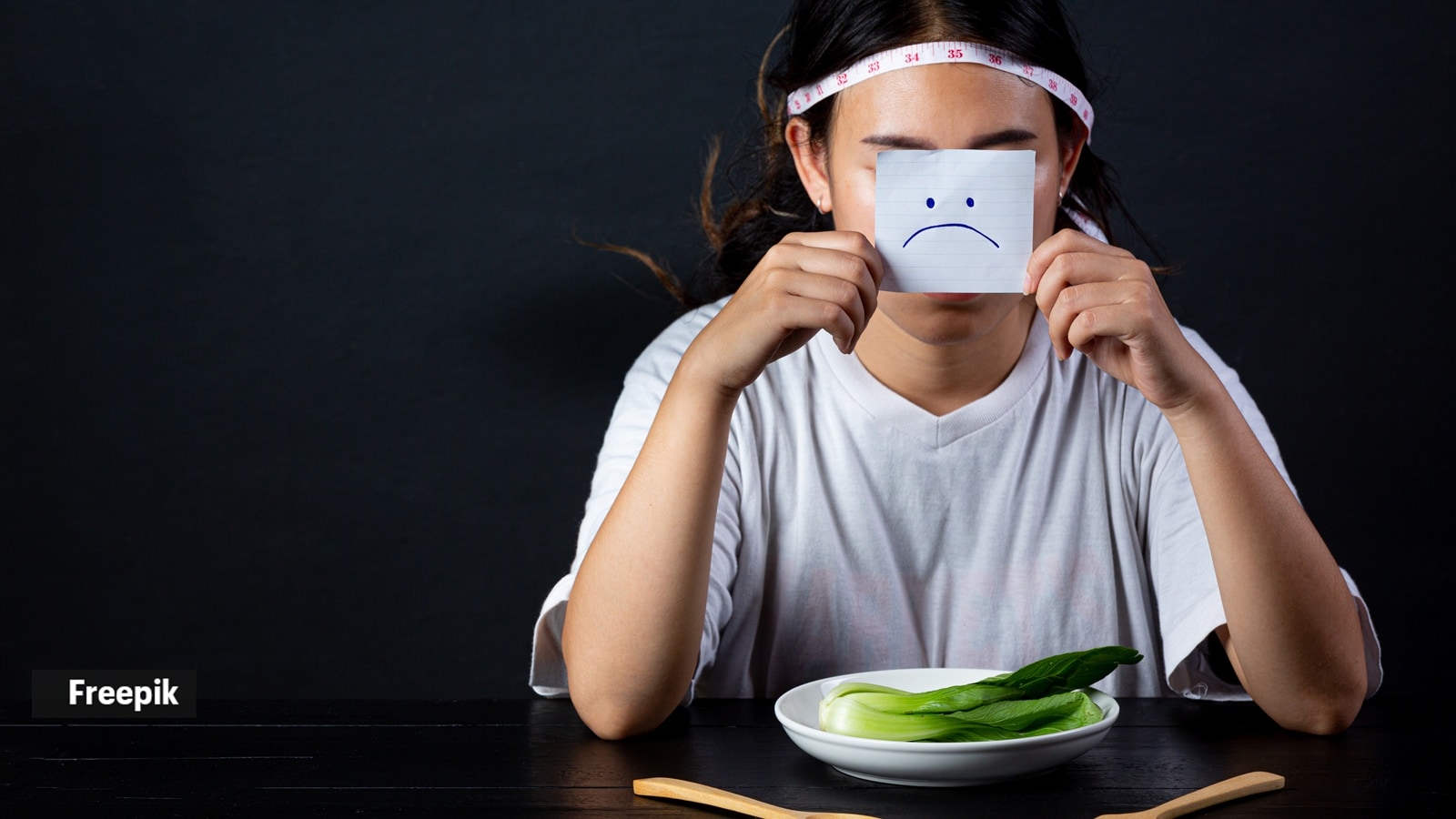“Every bite is a gift. When you eat with stress, your body feels it. When you eat with gratitude, your body heals from it. So before your next meal—pause, thank, receive,” says nutritionist Dr Rohini Patil. According to the nutritionist, guilt associated with food can lead to an unhealthy relationship with it.
“If you eat a cucumber with a lot of guilt, you will gain weight. That cucumber is going to do more harm to your body. But if you have a pizza or a burger out of love, gratitude, happiness and a lot of love, that will do more good to your body than one piece of cucumber,” said Dr Patil in an interview with Reema Mahajan on Instagram.
Muskan Marwah, a psychologist at Mpower, Aditya Birla Education Trust, shared that eating fried meals, desserts, or breaking dietary restrictions can cause a feeling of guilt – generally manifesting in tension, which interferes with well-being, and can even result in mental distress or harmful food habits. “Social pressures, body image issues, or the internalised notion that indulgence should be avoided are frequent triggers of this guilt,” she said.
Story continues below this ad
According to her, food guilt is largely reinforced by one’s diet cycle. It starts with violating a food guideline, like overindulging in a prohibited meal or overeating. “Feelings of guilt follow, and people start eating less to ‘make up’ for the excess. But these limitations frequently result in both emotional and physical suffering, which fuels greater cravings, overindulgence, and a return to breaking dietary guidelines. The cycle keeps repeating, resulting in an endless circle of limitation and guilt,” she explained.
How can you overcome this guilt?
Marwah suggested the following tips to rewire your mindset and enjoy your meals guilt-free.
1. Practice Mindful Eating: Savor each bite of your food rather than becoming fixated on it. Pay attention to the meal’s flavours, textures, and satisfaction. Eating mindfully improves the whole experience and lowers anxiety.
2. Embrace Flexibility: Recognize that one meal or treat does not negate your overall health objectives and that holiday indulgences are a part of the celebration. Instead of concentrating on perfection, consider balance as a whole.
Story continues below this ad
 Do you feel guilty for food? (Source: Freepik)
Do you feel guilty for food? (Source: Freepik)
3. Reframe Your Thoughts: Challenge the idea that indulging in foods is something to feel guilty about. Shift from “I’ve ruined my progress” to “It’s okay to enjoy myself today and get back on track tomorrow.”
4. Practice Self-Compassion: Be kind to yourself. Rather than labeling yourself as “weak” or “out of control,” treat yourself with the same kindness and understanding you would show a friend. Everyone deserves to enjoy food without judgment.
Practical tips to eat without guilt
- Eat slowly and without distraction: Actively listen to physical hunger cues and eat until you’re full. Practice distinguishing between true hunger and non-hunger triggers for eating.
- Engage your senses: Notice your food thoroughly, including the colours, smells, sounds, textures, and flavours.
- Learn to cope with guilt and anxiety about food: If you harbour such feelings around food, understand that this is not the time for any judgments. You are simply gooing to be present with what’s in front of you and enjoy it to the fullest.
- Eat to maintain overall health and well-being: Make it a regular practice to delve into the effects food has on your feelings and body.
- Appreciate your food: Appreciate the nutritious meal placed in front of you, and be thankful for being able to consume it without any interruption.
- Chew thoroughly: Do not rush into eating your meal. Eliminate any distractions by turning off the TV or putting down your phone.
DISCLAIMER: This article is based on information from the public domain and/or the experts we spoke to. Always consult your health practitioner before starting any routine.

